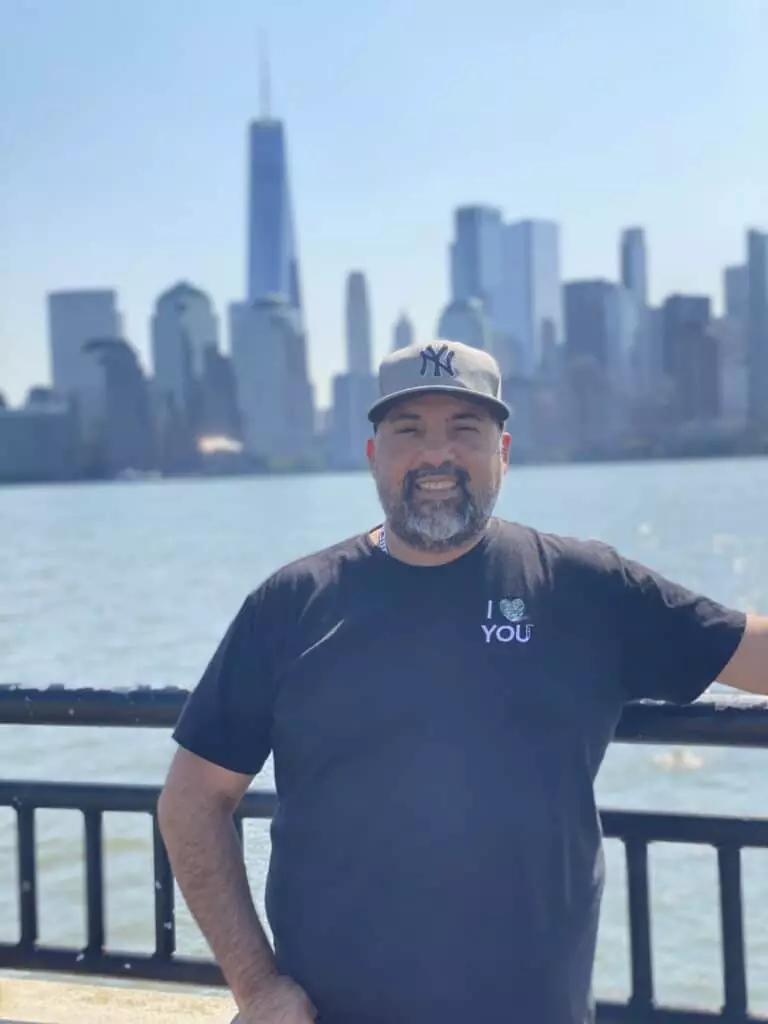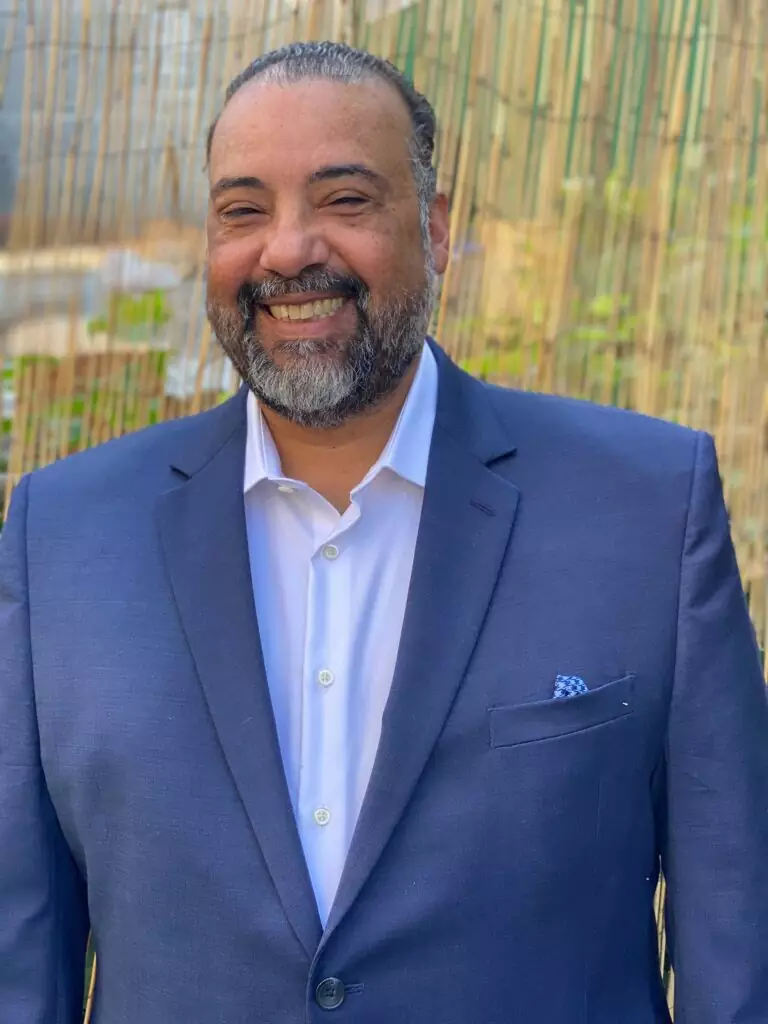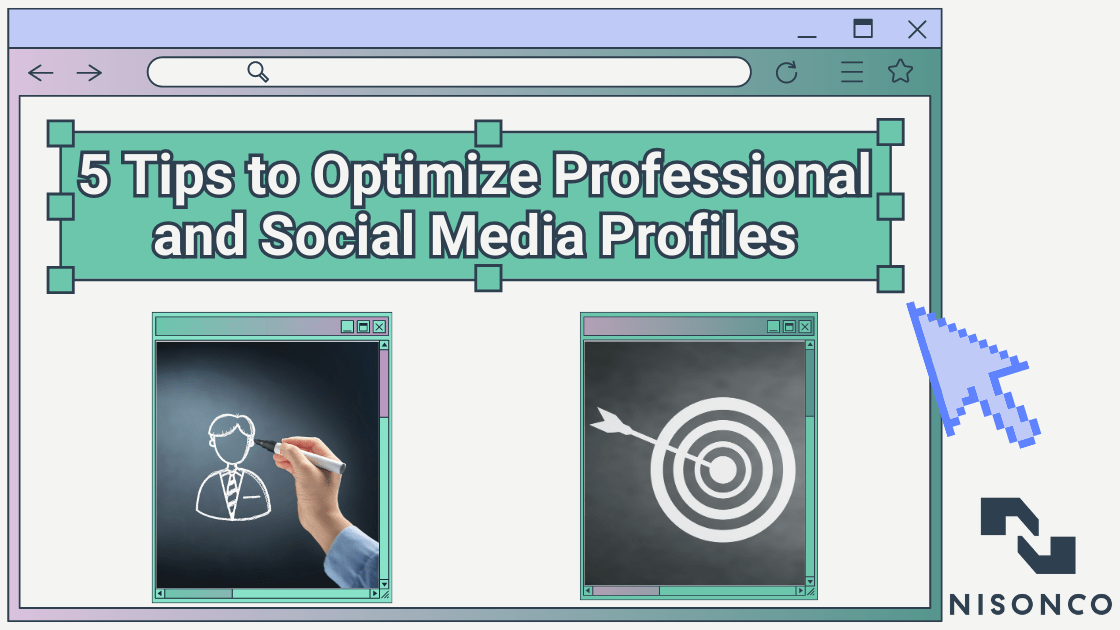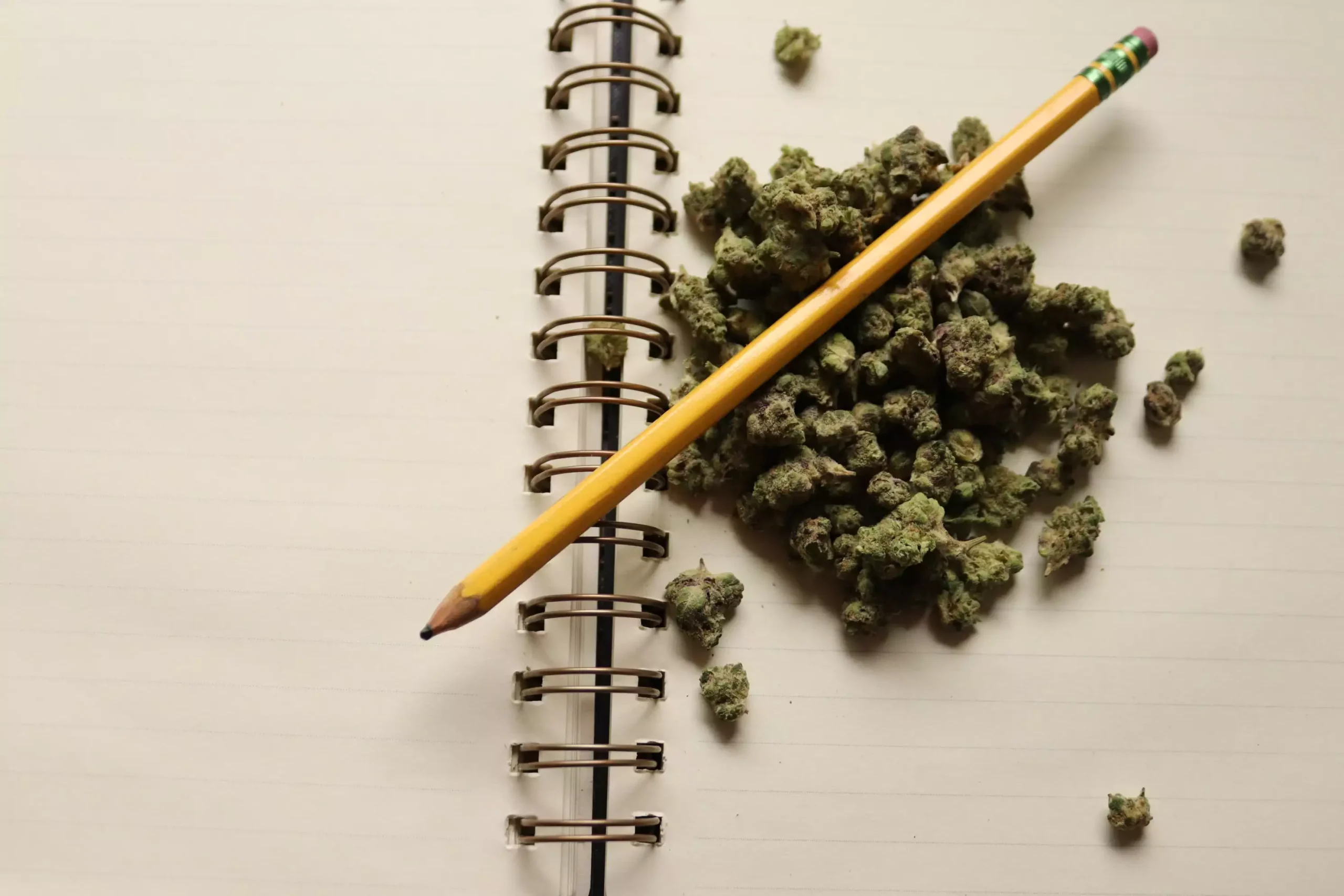Mario Ramos is the newest addition to the NisonCo team. In June, he was hired and onboarded as a researcher.
In addition to serving 16 years in the military, Mario worked for High Times as a VIP Events Coordinator for festivals. He’s also an artist and previously owned a graffiti artist store in lower Manhattan for eight years. His love for both art and cannabis go back decades. Everyone around knows he’s had a lifelong passion for cannabis culture, even when he was a teenager.
Mario is also part of NisonCo’s re-entry hiring program in partnership with the Last Prisoner Project. Fair chance hiring is at the core of this program, as our organization believes those with prior cannabis convictions shouldn’t be barred from the cannabis industry. After a three-year battle with the criminal justice system, he was released from prison in March 2021 and now serves in New Jersey’s intensive supervision program. He currently lives in Jersey City.
We interviewed Mario about his experiences growing up in New York City’s graffiti, breakdancing, and cannabis scene in addition to his incarceration story. Read below for our conversation.
Looking for Adryan’s recent interview with Mitzi Wall, mother of incarcerated cannabis activist Jonathan Wall? That can be found by clicking here.
Adryan: You grew up in New York City. Tell me what it was like being in the city so young.
Mario: I went to an all-boys high school in the Bronx. At the time, there was a lot of graffiti on the trains and it was like my own little museum. I got into graffiti really young. I was so lucky because that block I was in was so artistic. The graffiti artists that are real famous now, like Tracy 168, Rook, Charlie 158 — guys who pioneered it — were on that block.
Then I was a breakdancer in a crew called Rocksteady. I was one of the original guys from that crew. Even though it was on the street, it elevated a lot [of opportunities] for me. I ended up hanging in the galleries real young and going to a lot of places before you’re 18 years old. When you’re young, you can spin on your head all day and not get tired.
I grew up happy and had a good youth. We used to play manhunt and it was eight blocks from 155th to 163th with 500 kids. We’d play it 24 hours a day from fifth grade all the way until tenth grade in school. We’d hang out in the basements of places to hide out and have a bunch of little clubhouses everywhere filled with Playboy and High Times magazines. All the boys grabbed the Playboys, but I always grabbed the High Times. When I was 14 or 15, I brought High Times magazines home and my father would call me weird for putting up their cannabis centerfolds [rather than Playboy centerfolds] on my bedroom walls. Years later, he said, “I can’t believe you never stopped!” And he was cool over the years about cannabis.

Mario played, danced and spraypainted throughout a happy upbringing in the Bronx. “All the boys grabbed the Playboys, but I always grabbed the High Times,” Mario says.
A: What was cannabis culture like back then in New York City?
M: It was definitely different. You had the spots: you’d go to someone’s door, knock on it, slip the money under it, and they’d slip your product to you under the door. Some people got creative by taking the peephole off so you could exchange money and cannabis through that. Maybe they’d make a slot to be opened near the door. There were spots everywhere. You could literally go to five buildings on the same block. The more you smoke, the more you know which guys take better care of their product.
Even back then, there was the packaging — the yellow envelopes, the little bags. You could get arrested for putting your unique label on your product back then, but people still did it and put their little names on it. Some of us, though, tried to be very careful. Especially in New York City, the “stop and frisk” law enabled police to search you on the street and they could arrest you for possession, even for a joint.
A: In your own words, tell me your incarceration story.
M: I want to talk to people about my story because it could happen to anyone, especially if you’re in the cannabis industry or even if you’re just a smoker.
In November 2017, I visited a friend in Morris County when Governor Murphy announced he’d legalize cannabis within the first 100 days of his term. At this time, “secret sessions” were also exploding in New York City where you could bring your own. [My friend] was very enthusiastic about replicating this big space in Jersey and adding on a lounge, clothing store, and more. He wanted to bring me to host pop-up shops featuring graffiti, art, and the cannabis lifestyle.
One night before a Black Friday pop-up, I was one of the last people to leave individually and I got arrested. When I got to the station, I saw all my friends and everybody else was arrested, too. A lot of people went home. I had a California driver’s license and was booked as a “flight risk.” Later, we found out the owner of the space got into a fight with someone who didn’t want the project to happen and told on everyone. I don’t know that guy. I didn’t even know the guy who owned the space.
I ended up serving one year and 48 days, starting out in the Morris County jail. They were first going to sentence me for life because they claimed to have seized 400 plants, but it was actually 28 plants except with 400 cuttings. As I sat in jail, the cannabis reform bills constantly changed. At a certain point, a judge let me go home for two years and said I’d be resentenced at a later date.
In November 2020, New Jersey voted in favor of recreational cannabis legalization. My lawyer said my time was over, but the judge didn’t budge because the state didn’t vote on growing laws. COVID behind bars didn’t even weigh on him, so he puts me back in jail and sentences me to seven years flat. My family and I couldn’t believe it.
They didn’t even find any cannabis on me when they arrested me, not even a lighter, but they still dragged me through the whole system. Where you go, you have to know the law because you don’t know what could happen.
A: How did it feel to finally be released?
M: The minute I came out, I went to something like five job interviews a day. Many wanted to hire me, but then HR would come and they’d let me know they didn’t need me anymore. People are making millions of dollars from dispensaries and other businesses, but they have to help hire people coming out of prison. At NisonCo, I’m so happy to help my family with money. I’m fortunate to be working in the industry.
The Last Prisoner Project is a cannabis reform non-profit dedicated to fighting criminal injustice and reimagining drug policy. Visit their website to learn more about their re-entry resources and contact information.



